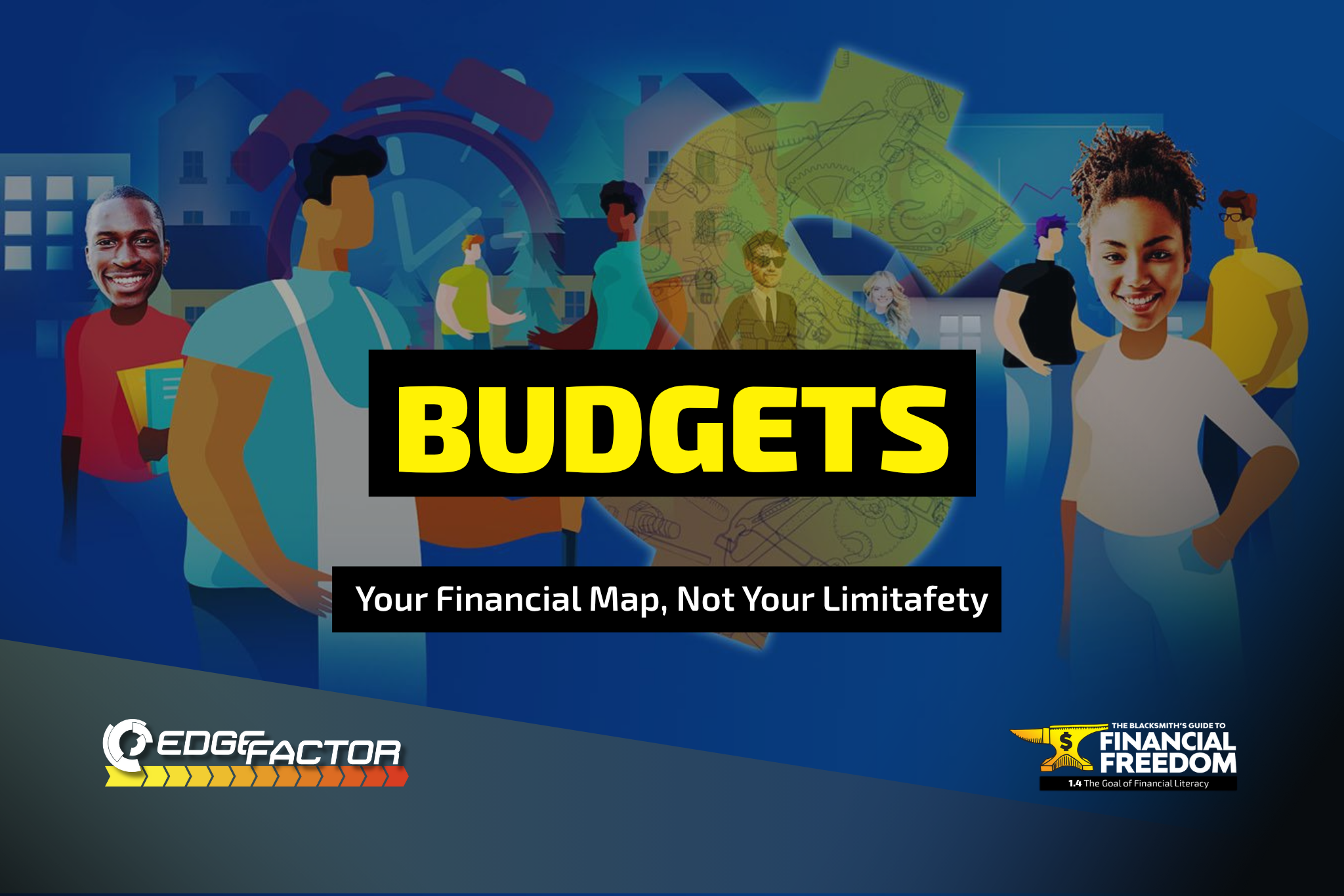
When most people hear the word “budget,” they think of restrictions. No coffee runs. No extra spending. No fun.
But the truth is, a budget isn’t about limiting your life, it’s about providing you a clearer view of your money so you can choose how to use it wisely.
In Edge Factor’s Financial Literacy course, Unit 4: Budgeting and Debt helps students and lifelong learners rethink how they manage money. Through short videos, reflection questions, and practical activities, students learn why financial literacy is important, how to track spending, plan, and build confidence in their financial decisions.
A good budget isn’t about saying “no” to everything, it’s about making sure you’re always saying “yes” to the things that matter most.
At its core, a budget is a plan for your money. It tells you where you are, where you’ve been, and where you want to go financially.
But many people think budgeting is only for those in financial trouble, or that it’s too rigid for real life.
“If you don’t know whether or not you need a budget, you probably need one. It’s meant to help you become disciplined and stay disciplined.” — Andrew Devisser, Author of A Blacksmith’s Guide to Financial Freedom and host of the Financial Literacy Series
%2520(2).jpeg)
So, why bother with a budget in the first place? Because it gives you control. A budget isn’t just about limiting spending—it’s a tool to help you make intentional choices. Here are five key benefits of having a budget:
Andrew uses this story to exemplify how a budget can sometimes cost you money.
Meet Frank. He’s disciplined, budget-conscious, and a big fan of bacon. Like, one-pack-a-week kind of fan.
One day, Frank walks into his local grocery store and BAM—bacon’s on sale for 60% off. Jackpot. His budget says he can buy two packs, so he grabs two and walks out feeling like a financial genius.
But here’s the thing: bacon freezes. Frank eats one pack a week. That’s 12 weeks of bacon he could’ve locked in at a massive discount if he’d thought long-term and bought more upfront.
Instead, Frank stuck to his short-term budget and missed out on big savings.
The takeaway? A budget should guide you, not box you in. Sometimes, spending more upfront (on something you already use) is the smarter long-term move.
“By only buying when the price is good, you can end up much further ahead. Most people think of investments in terms of the stock market, which will make you money. Other forms of investments can also save you money, which is the next best thing.” — Andrew Devisser
Small financial choices can quietly pile up without a plan until you're staring down a mountain of debt.
That’s why budgeting and debt management go hand-in-hand. A good budget doesn’t just help you track where your money’s going—it helps you avoid borrowing it in the first place.
In the Debt lesson, students explore the difference between smart debt and risky debt. For example, taking on a mortgage for a house is often a strategic decision. While you're making payments, the value of the house typically increases, so by the time it's paid off, your investment is worth more than you borrowed.
Now compare that to going into debt for a brand-new car. It loses value the second you drive it off the lot. At some point, your loan balance might be more than the car is worth. That’s not strategic—that’s short-term thinking with long-term consequences.
As Andrew Devisser puts it:
“When you spend money now that you should be saving for the future, you’re borrowing freedom from tomorrow.”
Learning to budget early helps students recognize spending patterns and make smarter decisions. It’s not just about spending less, it’s about knowing when it’s worth spending and when to walk away.
Because the goal isn’t just to stay out of debt—it’s to use money wisely so students are prepared for life’s big moments and unexpected setbacks. And that’s a skill worth building.
%2520(3).jpeg)
Whether you're just starting to manage your own money or helping a student prepare for the future, budgeting is one of the most valuable habits you can build.
It connects to everything, from understanding wealth, to building good habits,to securing your financial future. And with the right tools, it doesn’t have to be complicated.
With Edge Factor, students explore budgeting, debt, and everyday money habits through story-driven videos, guided questions, and interactive tools. They practice real-world planning and build the discipline needed to manage money with confidence.
Educators are equipped with ready-to-use lessons, reflection prompts, and assessment tools that infuse financial literacy into classrooms or homeschool settings, guiding students to make informed choices and inspiring habits that lead to lifelong financial success.
Want to equip your students with the tools to budget, save, and plan ahead?
Book a demo to explore Edge Factor’s Financial Literacy course and see how a premium membership can bring money lessons to life in your classroom or homeschool.
Or create a free account to start inspiring your students on their purposeful career journey.
Sign up for the Edge Factor Newsletter and follow us on social media to receive the latest updates on features, events, and initiatives that will help you build the future workforce.
Email: info@edgefactor.com or message us on the Live Chat. We’d love to hear from you.